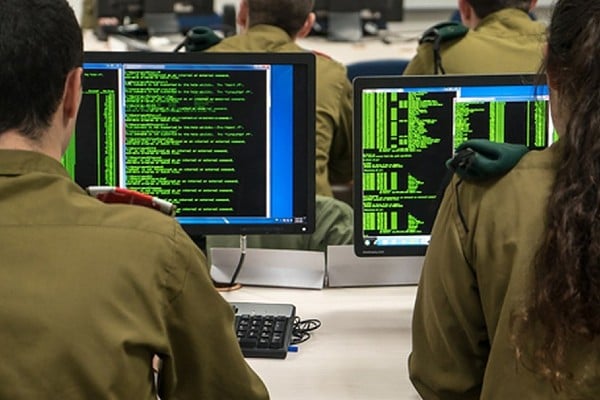If the three had been actual enemies, they could have caused severe damage to the base’s infrastructure, soldiers, and staff.
By David Issac, JNS
A three-member audit team of the Israeli army’s General Staff infiltrated one of the Israel Defense Forces’ most sensitive bases.
During the night between Israel’s Memorial Day and Independence Day (May 13-14), the three entered the Unit 8200 intelligence base at the Glilot military camp in Ramat HaSharon, Ynet reported on Thursday.
They posed as officers of the ranks of lieutenant colonel and colonel and entered directly through the guard house without being challenged.
“For nearly three hours, they roamed the base unhindered, reached operational compounds, collected hundreds of classified documents and data material from secret computers,” according to the report.
Unit 8200, the IDF’s signal intelligence unit, considered the “eyes of Israel,” is subordinate to the Military Intelligence Directorate, known in Hebrew by the acronym AMAN.
AMAN’s chief, Maj. Gen. Aharon Haliva, has been identified as one of the key figures responsible for failing to anticipate the Hamas onslaught of Oct. 7. He announced his resignation on April 22.
If the three had been actual enemies, they could have caused severe damage to the base’s infrastructure, soldiers and staff in what would have constituted a huge blow to the IDF and Israel, the site said.
In the morning, realizing the level of their success, or conversely, the depths of the base’s security failure, the auditors called off their inspection and contacted the relevant commanders.
They told the commanders that they were inside the base and had plenty of time to photograph and broadcast secret materials that they obtained without interference.
“Half a year since Hamas terrorists, disguised as soldiers, penetrated into sensitive bases in the western Negev as part of the Nukhba invasion of Israel, and we have learned nothing,” said officials in the Military Intelligence Directorate, reacting to the test infiltration.
The army tried to downplay the severe security lapse, claiming that the base fared better in subsequent inspections which immediately followed. However, improvements are usually measured in months and years, not weeks, Ynet noted.
The army also said that 30 officers were punished. However, none was above the rank of major.
“In such a strategic unit for Israel’s security as 8200, the senior commanders in the unit did not take practical responsibility for their failures,” military intelligence officials complained.
“They are directly responsible because they did not provide a warning to the forces. It’s a wonder that for such a repeated failure, no officer is fired,” they said.
The security lapse follows another last weekend when a Palestinian man managed to infiltrate an IDF base near Ramallah in Samaria and freely roam the premises before being caught.
The intruder climbed the fence of the Judea and Samaria Division’s headquarters without being noticed. The incident took place on June 8 after Shabbat.
The suspect was eventually apprehended by two Border Police officers who were exercising in sports clothes while unarmed.
An IDF spokesperson said the army would initiate disciplinary action against two soldiers who were tasked with guarding the sector from where the Palestinian entered, but stressed that there was no security incident as the infiltrator is apparently not a terrorist and is believed to be mentally ill.
In response to the incident, the military said it decided to increase the buffer zone around the base, create a valley between the fence and the road around the base and add additional “security elements.”
In another failure reported in late May, IDF inspectors posing as thieves succeeded in infiltrating a sensitive Air Force site and simulating the theft of ammunition and weapons.
Military officials criticized the facility’s lapse in security and the lack of discipline of the soldiers stationed there, saying that the lessons of Oct. 7 have not been learned.
“We all learned that adherence to routine procedures is important. You never know when the tide will turn,” an IDF spokesman said.
The inspection took place as part of a general audit of the Judea and Samaria Division.
“The camp defense system regularly conducts surprise inspections of the security of the camps. An audit was carried out in the camp, the findings of which were forwarded to the commanders,” the IDF spokesman said.
The army is concerned about camp infiltrations and the theft of ammunition and weapons, which can find their way into the hands of terrorist and criminal organizations.
In a particularly embarrassing event that remains noteworthy, the IDF in June 2011 discovered the theft of eight F-15 and F-16 fighter engines from the Tel Nof Air Base south of Rehovot.





